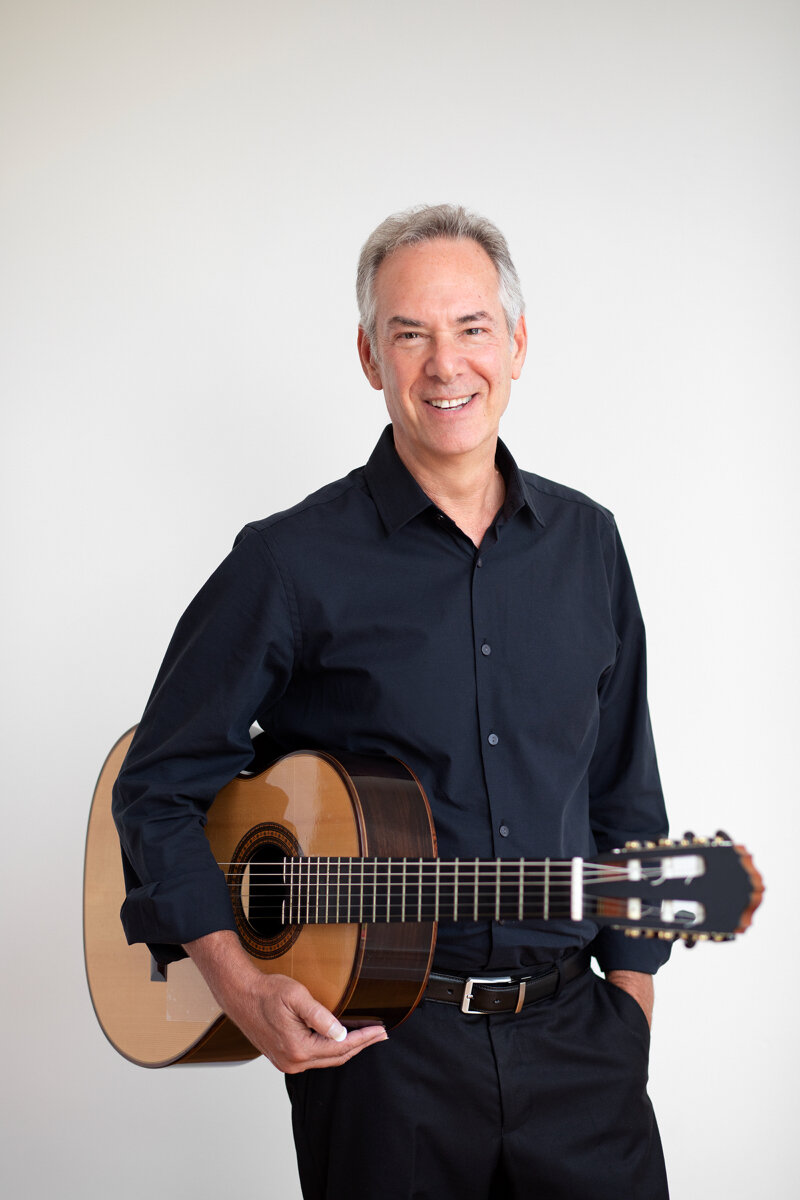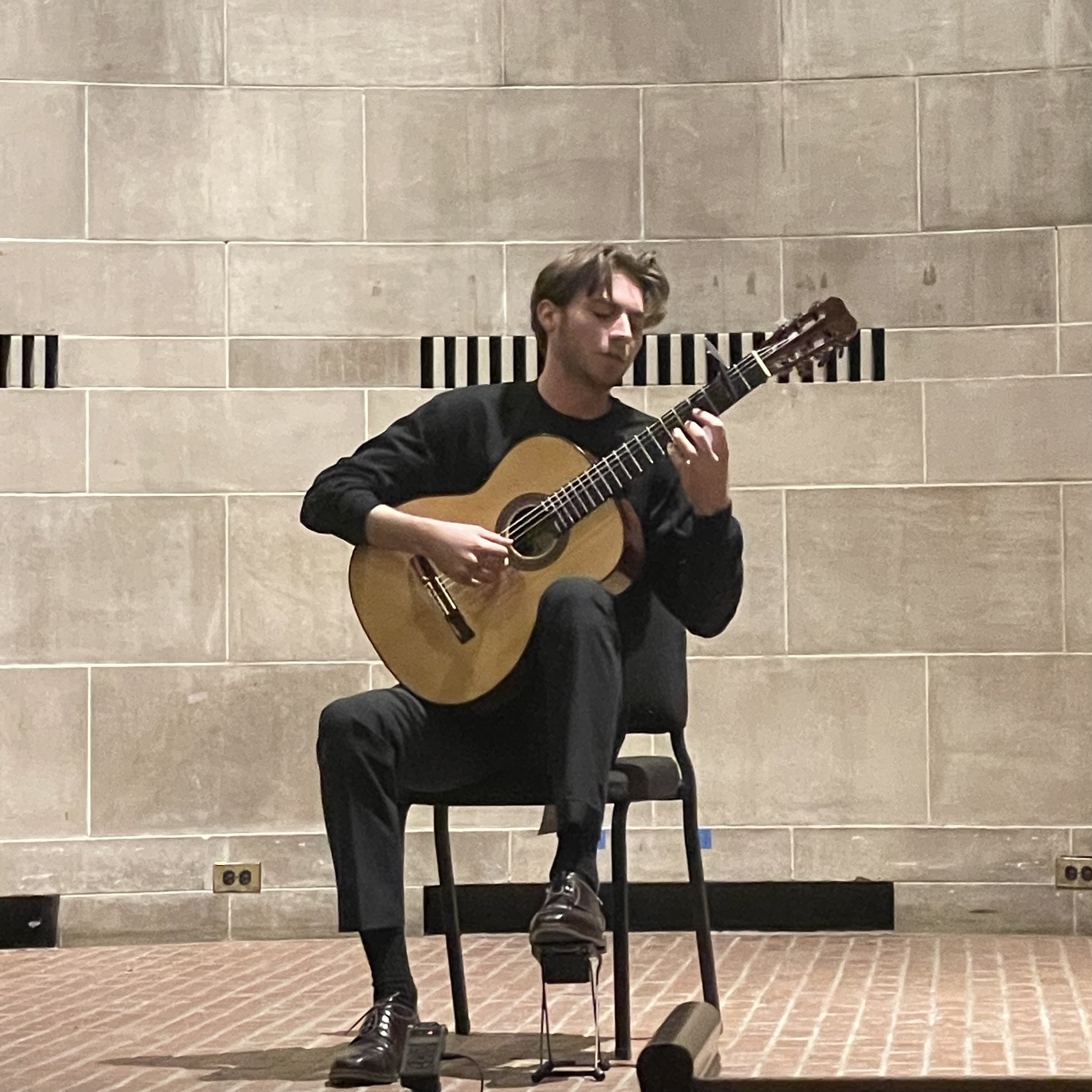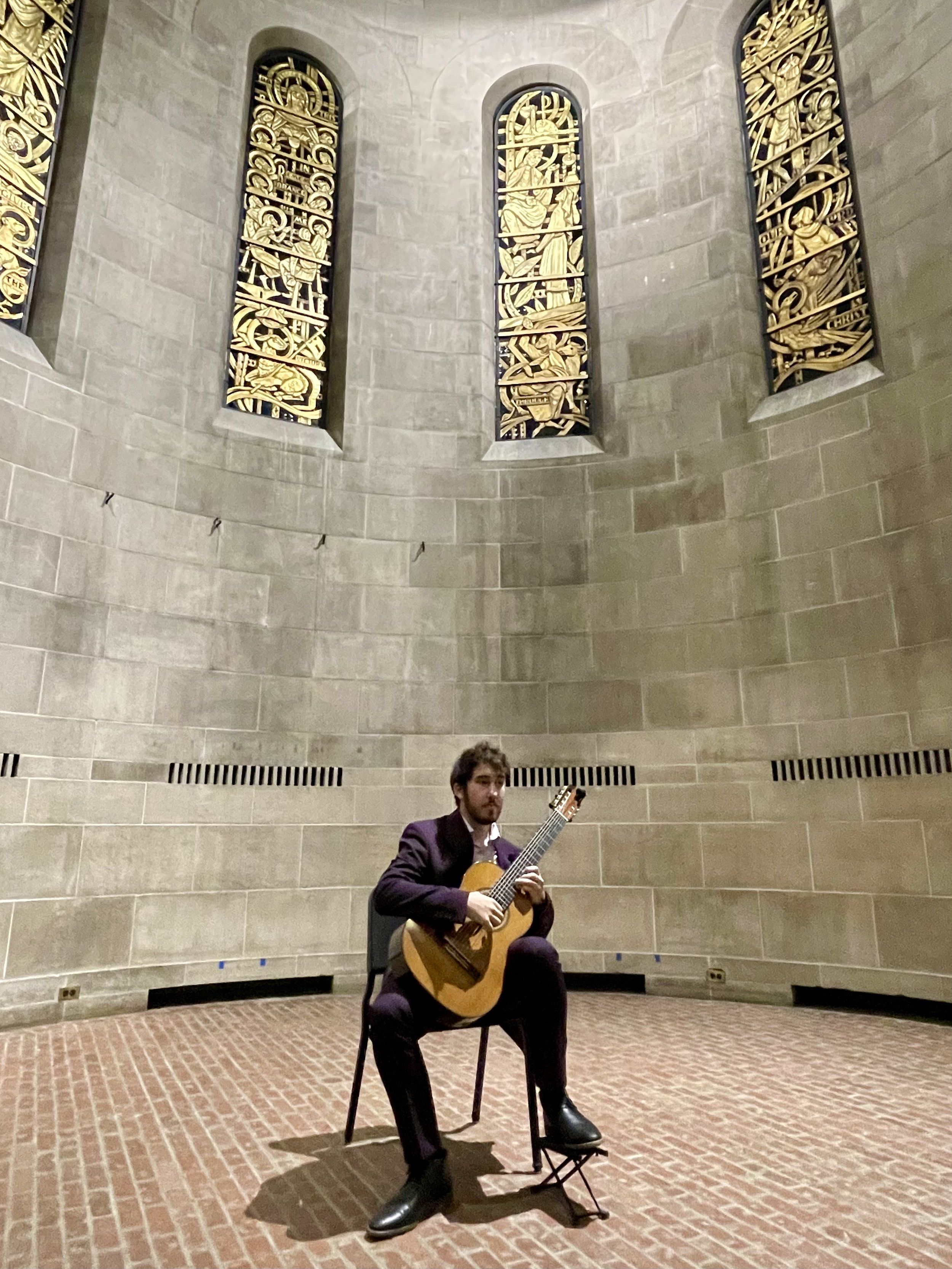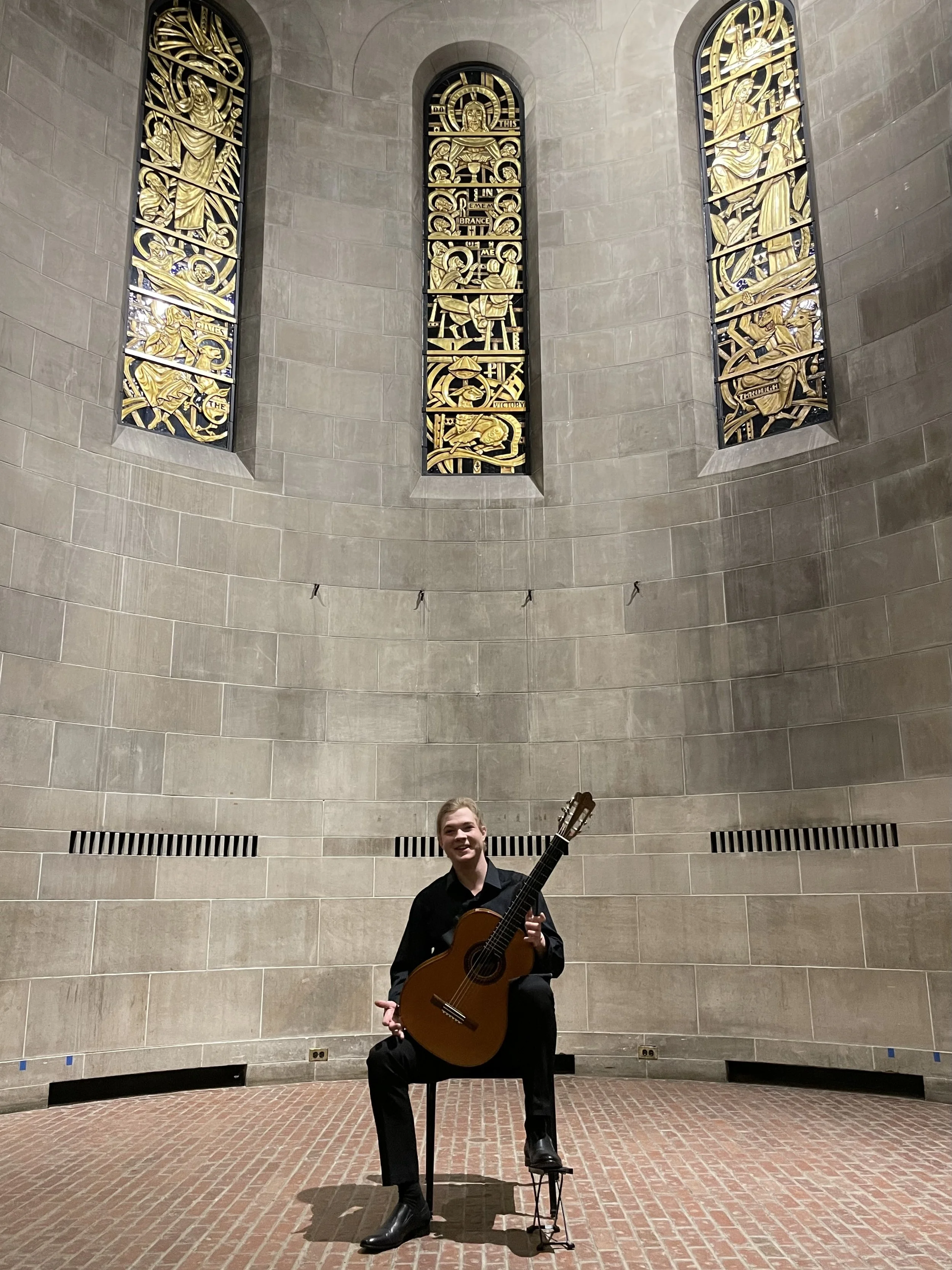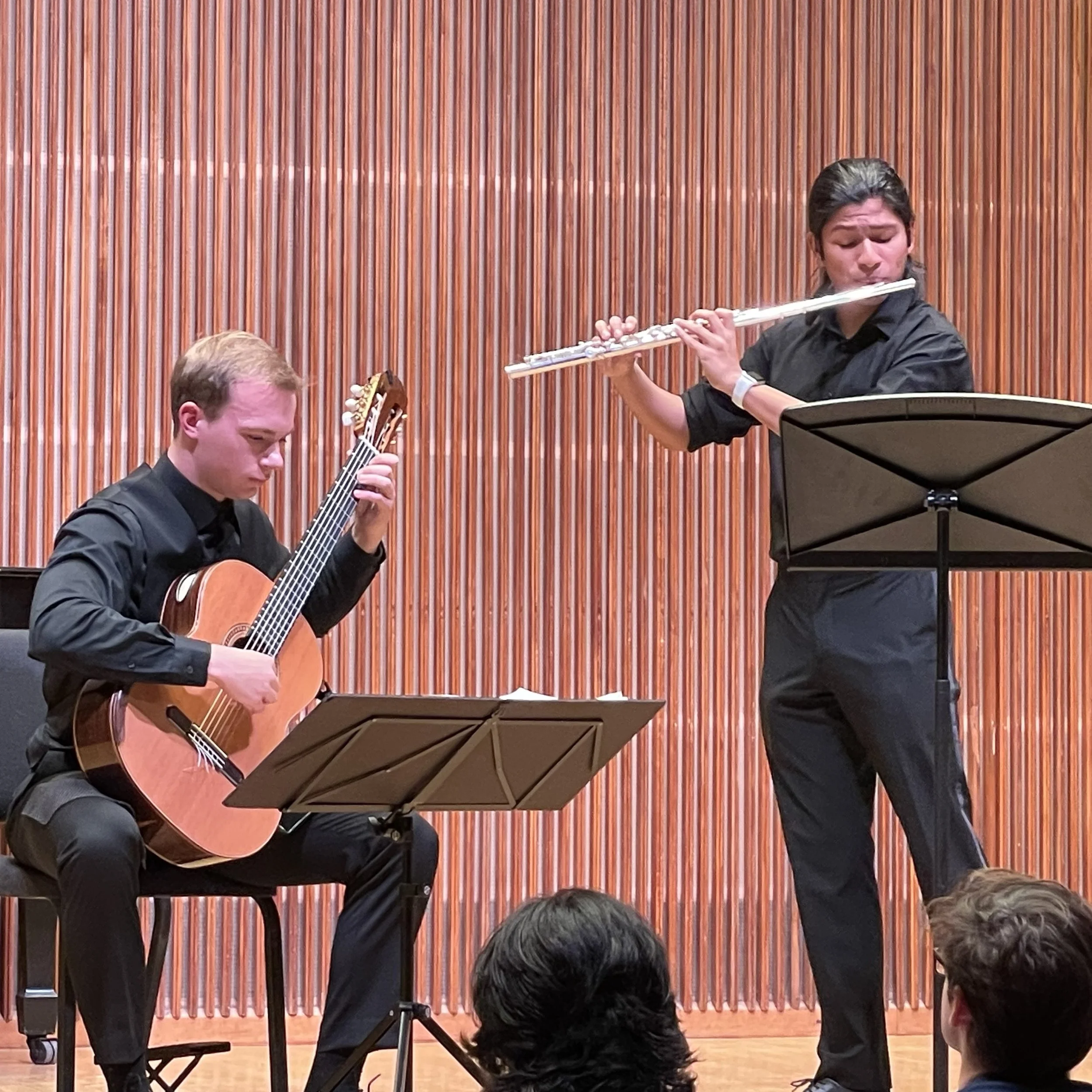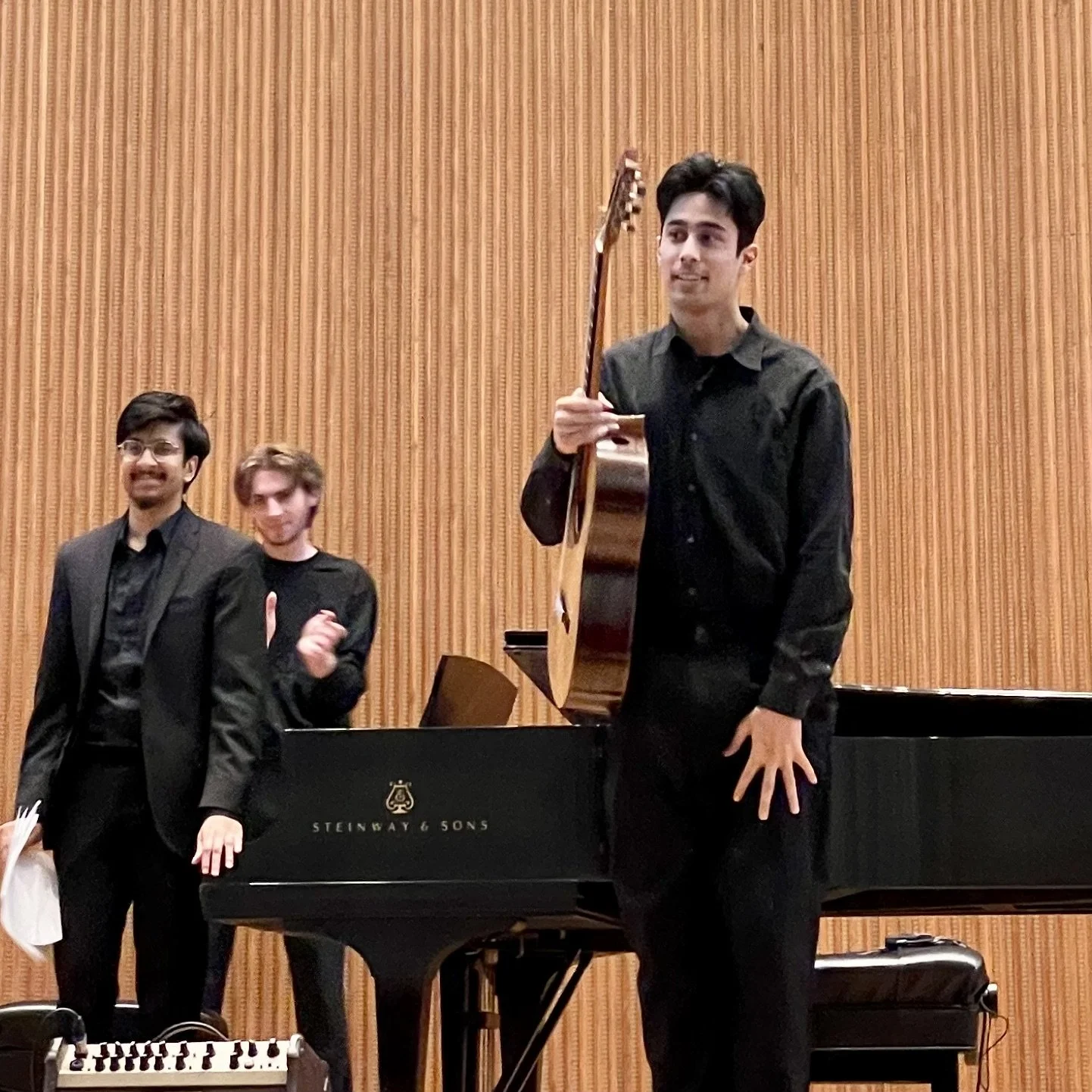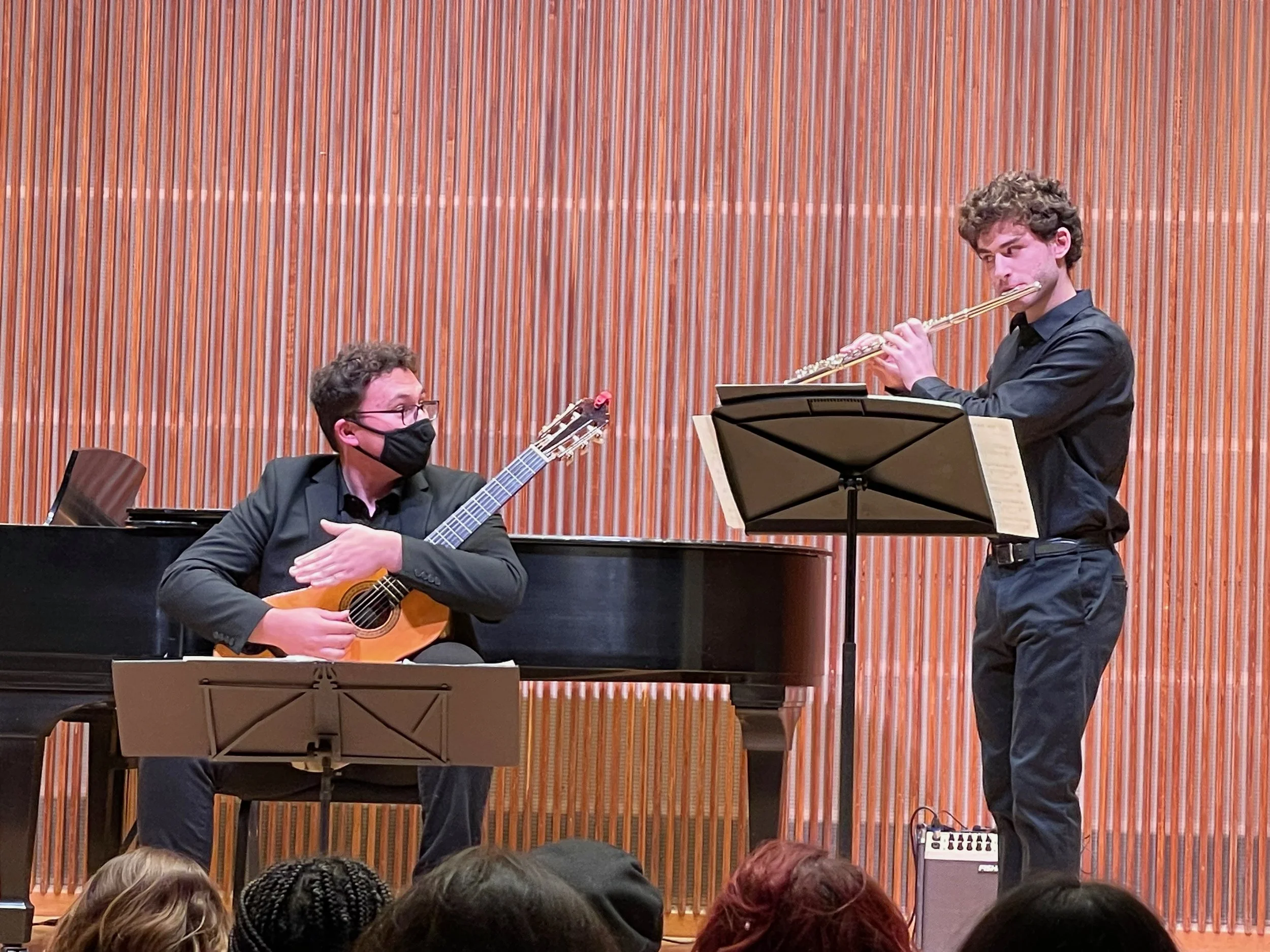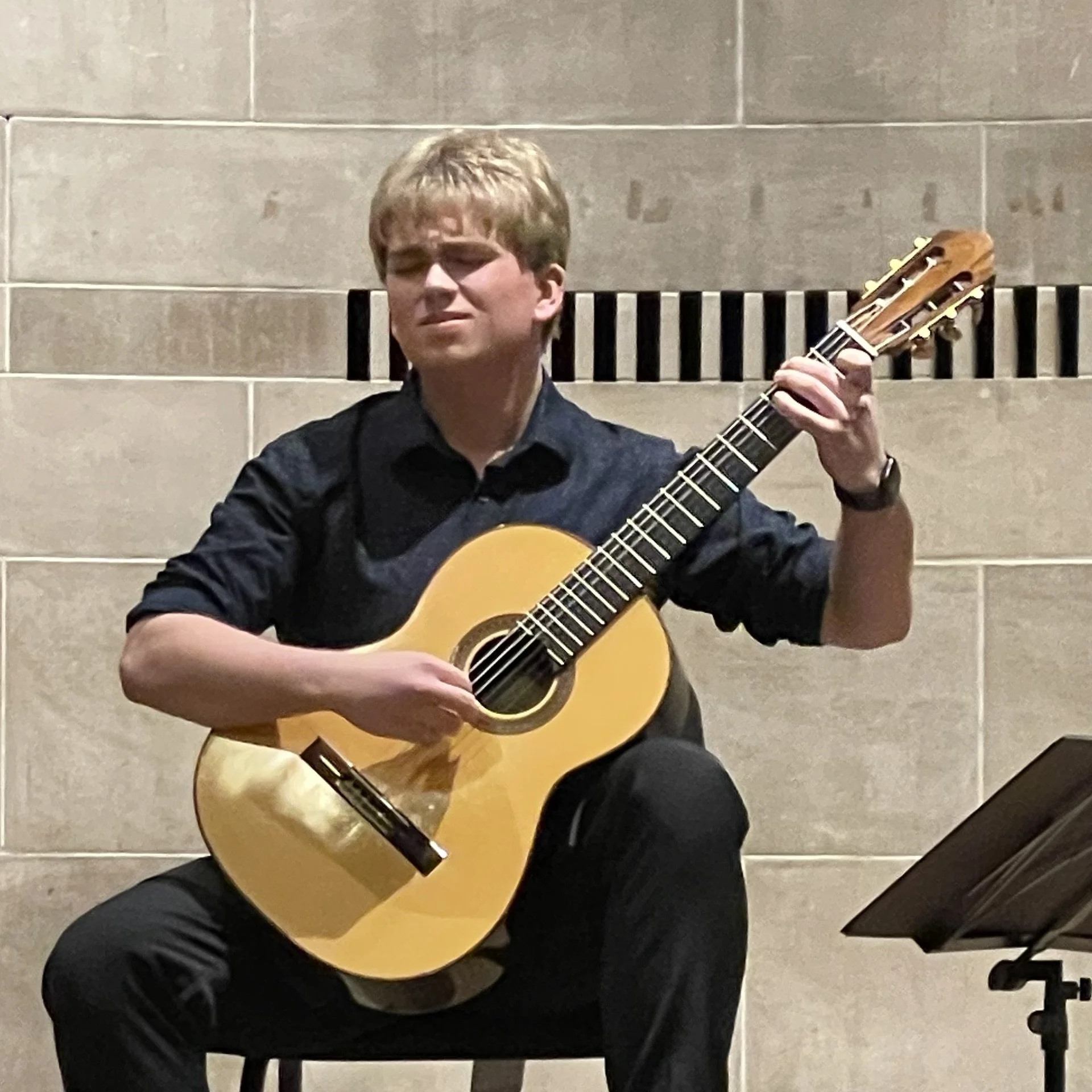Oberlin Guitar Studio Recitals Fall 2023
We always end our Fall semester at Oberlin with a public recital(s) as a substitute for the normal “juries” which are required for performance majors. This time, instead of the customary marathon, we broke the presentation into two back-to-back concerts of an hour or so each. Each evening featured three guitarists. (Two members of the Studio were exempt, having already given solo recitals this semester—Damian Goggans and Rio Manzanares)
Our first evening opened with first-year student Sam Schollenberger. Sam played works by Bach, Giuliani and Dyens. His excellent phrasing in the Bach, the nuanced control he exhibited in the seldom-heard variations set, and his exuberant rendering of the Dyens favorite bode well for Sam’s musical future. (Full programs at the end of the post)
Sam Schollenberger on stage in Fairchild Chapel
Next up was Josefina Stone, whose solo presentation was deferred for health reasons, but instead performed the ensemble piece she was working on. Her flutist partner had a conflict with our Ensemble concert date, so we found this a perfect solution. Their perfromance the first time this di Marino work had been programmed here, and I found the piece delightful; the audience did too. Dylan Masariego’s flute sound was sumptuous and the duo’s perfectly synchronized reading of the Latin-styled piece landed perfectly.
Josefina Stone and Dylan Masariego play in Fairchild Chapel
The concert concluded with Nik Divall. Nik’s program featured works by Telemann, Tedesco, Glinka and Bach (the Glinka was inadvertently omitted from the printed program). He had just brought up this Marchione arrangement of a Telemann violin Fantasia which, while short, has a gorgeous opening movement and two challenging and spirited companion movements. Nik played it with serene confidence. His Capricho Diabolico was electrifying—it is settling now in his hands and emerging as a major repertoire piece for him. Another new piece, an arrangement of Glinka’s Variations on a Russian Folk Song reminds the listener of Paganini’s 24th Caprice in its wild virtuosic flights. Nik plays it with remarkable panache and equanimity—it was dazzling. And finally, his suave and touching handling of a Bach Chorale Prelude was a compelling and sophisticated way to close his presentation.
Nik Divall plays in Fairchild Chapel
Our second night began with first-year student Solis Goldsmith, who played works of Mertz, Lauro, Giuliani and Costa on his 7-string guitar. His Liebeslied was well-paced and phrased, and his Lauro Waltzes were fast, bright and impressively solid. He delivered the Giuliani set with refreshing commitment, giving each variation its own unique character and pace, with a virtuoso finale that roused the audience. He used his 7-string to good effect in his final piece, a jazzy offering by Yamandu Costa, presented with compelling dynamic shaping. It was an auspicious first Oberlin performance.
Solis Goldsmith takes the stage in Fairchild Chapel.
Next up was Aleksandr Lapshin, who offered works by Bach and Regondi. His bravura opening, with Bach’s iconic Prelude BWV 1006a landed beautifully, proving a solid technique and a fearless performer. He followed with the masterful Intro and Caprice, a work he played with a degree of brilliance that was breathtaking. The audience loved him.
Aleksandr Lapshin performs in Fairchild.
Finally, Suvan Agarwal wrapped up our proceedings with works by Bach and Ponce. His two Bach violin Partita movements were played with absolute mastery: brilliant technical command, gorgeous tone and sophisticated pacing and nuance. From there, he led us to two movements of Ponce’s seldom-played Sonata Romantica, the composer’s homage to Schubert. Suvan, who not only listens avidly to music of Schubert and other Romantics, but played the arpeggione part of Schubert’s entire Arpeggione Sonata last year, knows what this music should sound like in a way that few guitarists do. He delivered on the promise with a performance that was both commanding and captivating, as he revealed the subtleties and shapes we seldom hear in this music. It was a brilliant performance.
Suvan Agarwal in Fairchild Chapel
This was one of our best ever Studio Recitals. Congratulations to all the performers!
